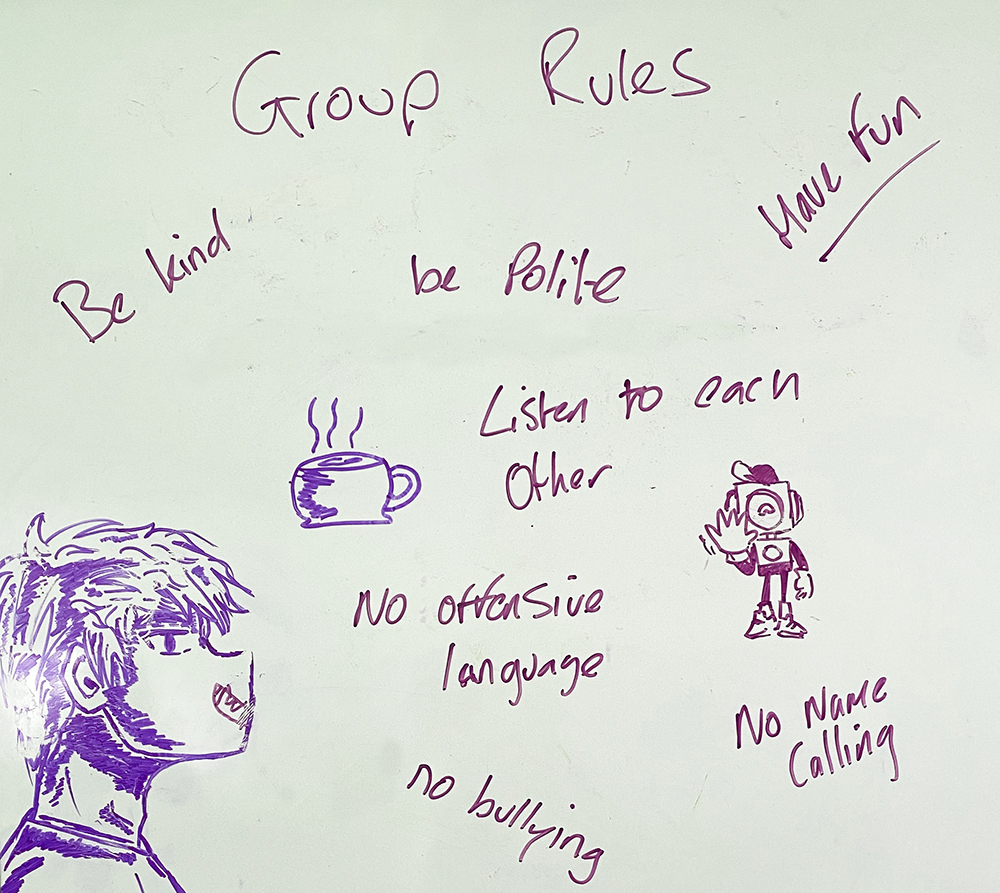When we run our holiday clubs, we start by asking the young attendees to agree their own rules. The one thing that is always on the list is “no bullying”.
This summer our rules also included “be kind”, “be polite”, “listen to each other”, “no name calling”, “no offensive language”, and of course, “have fun”. These rules all help to promote a culture of inclusion and friendliness and create a club that young people want to come back to day after day.

This year, Make (Good) Trouble joined the Anti Bullying Alliance. We want to help raise awareness of the issues around bullying. Did you know that 25% of school pupils have been bullied “a lot of always” (ABA research, 2016)? Did you know that bullying can have long-lasting effects, right into adulthood? And that those at risk of being targeted are more likely to be looked after children; registered as SEN; LGBTQ+; those of a different faith; children on free school meals; or those with a disability.
So we have signed up to the alliance which:
- believes bullying in any form is wrong and should not be tolerated, and that any environment that encourages bullying, or shows indifference to prejudice and discrimination is unacceptable;
- believes bullying is a behaviour choice and that anyone can be encouraged to change their behaviour;
- believes all children and young people have intrinsic value and worth and we embrace their uniqueness and autonomy;
- respects difference and welcome diversity in our children, young people and in society in general, and believe our work should be inclusive of all;
- believes children and young people should have the right to feel safe, secure and valued, and that creating a safe environment and dealing with bullying is our shared responsibility;
- believes children and young people should actively participate in decisions that affect them and should be supported in taking responsibility for their choices and subsequent actions;
- supports a range of positive strategies to deal with bullying and actively challenge the use of humiliation, fear, ridicule and other similar approaches in an effort to reduce bullying;
- works within the UN Convention on the Rights of the Child (Articles 14 and 28); and
- believes that people should be treated with respect and courtesy.
The Anti Bullying Alliance has loads of great free training and resources on their website. We hope you’ll be moved to join the alliance.

